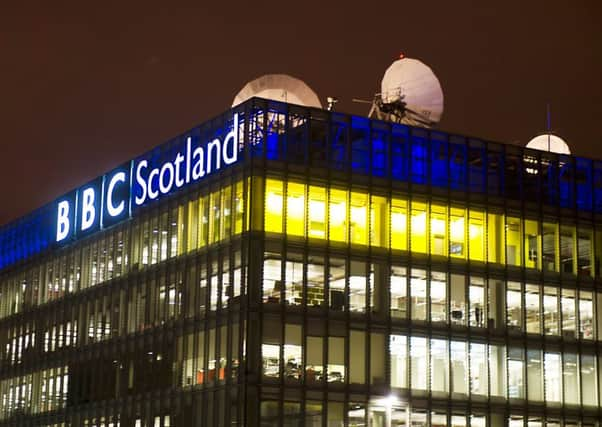John McLellan: BBC Scotland's impact on the media landscape
This article contains affiliate links. We may earn a small commission on items purchased through this article, but that does not affect our editorial judgement.


An additional £18 million investment will see the creation of 80 new journalism jobs; with a content budget the same as BBC 4 it should give a major boost to the Scottish creative sector as a whole.
Advertisement
Hide AdAdvertisement
Hide AdOn the face of it, for the average viewer there are few downsides to a project which promises to give the Scottish creative landscape a significant shot in the arm. But an investment by the BBC in what is a highly competitive commercial market is bound to have implications and a consultation on the plans closes a week today.
The most obvious concern for the BBC’s competitors is what all the new staff are going to be doing and where they will come from; while existing BBC staff will no doubt be a significant source of recruitment it’s inevitable that newspapers and commercial broadcasters will lose valued people to Pacific Quay, if indeed that is where they will be based.
Specialist reporters particularly are likely to be drawn from newspapers, as they have always been, following the well-worn path of Brian Taylor, Douglas Fraser, Tom English and more recently from The Scotsman, Nick Eardley, but given BBC Scotland already employs those specialists, what roles will more specialist staff perform?
The concern from commercial, non-broadcast news providers such as The Scotsman, is that even a commitment to an hour of news every night will not need 80 additional journalists in Scotland and the result will be much more content for the BBC’s online services which remain a direct threat.
Eighty journalists on top of the existing workforce would represent a reporting team far in excess of any other Scottish news organisation and given the BBC’s existing dominance it’s hard to see how they could compete without spending money they don’t have.
The new channel will operate between 7pm and midnight with news at 9pm. 60 per cent of the output will be new shows or acquisitions, presumably including the news hour, so the split will be two hours each for new and repeat/archive.
It might not sound a lot, but it’s a considerable commitment to promise two hours of BBC-quality new shows every night. Sport and arts previews and documentaries will no doubt feature prominently, but so too might bought-in foreign language dramas like STV 2’s War and Love from Poland.
Advertisement
Hide AdAdvertisement
Hide AdNow the BBC Trust has been disbanded, for the first time the judgement about whether the plans represent unfair competition will fall to the government’s communications watchdog, Ofcom. The balance of resources between news and other programmes will be something for it to consider.
• John McLellan is director of the Scottish Newspaper Society and a City of Edinburgh Conservative councillor